Resurrection of MQM-Pakistan

Throughout its history, the erstwhile Muttahida Qaumi Movement (MQM) has suffered numerous splits and fractures, beginning from its united Mohajir origins to its present-day splinters i.e., MQM-Pakistan, MQM-London, MQM-Haqiqi.
However, the sinister events that unfolded on August 22, 2016, touched off a devastating watershed. On that day, Altaf Hussain, the all-powerful party supremo, who had been pulling the strings of the Urdu-speaking Mohajir community for nearly three decades, shot his politics in the head by speaking the unspeakable.
This started a countdown, not only to the downfall of Altaf but also to the entire party — both were thought to be too big to fall.
The term MQM-Pakistan was coined when Altaf decided to settle in London in the 90s, and members of the Rabita Committee opted to establish a secretariat in London in addition to the one in party headquarters, Nine Zero, Azizabad.
Although initially functioning as a single Rabita Committee bridging Pakistan and London, it later bifurcated into the MQM-Pakistan and the MQM-London.
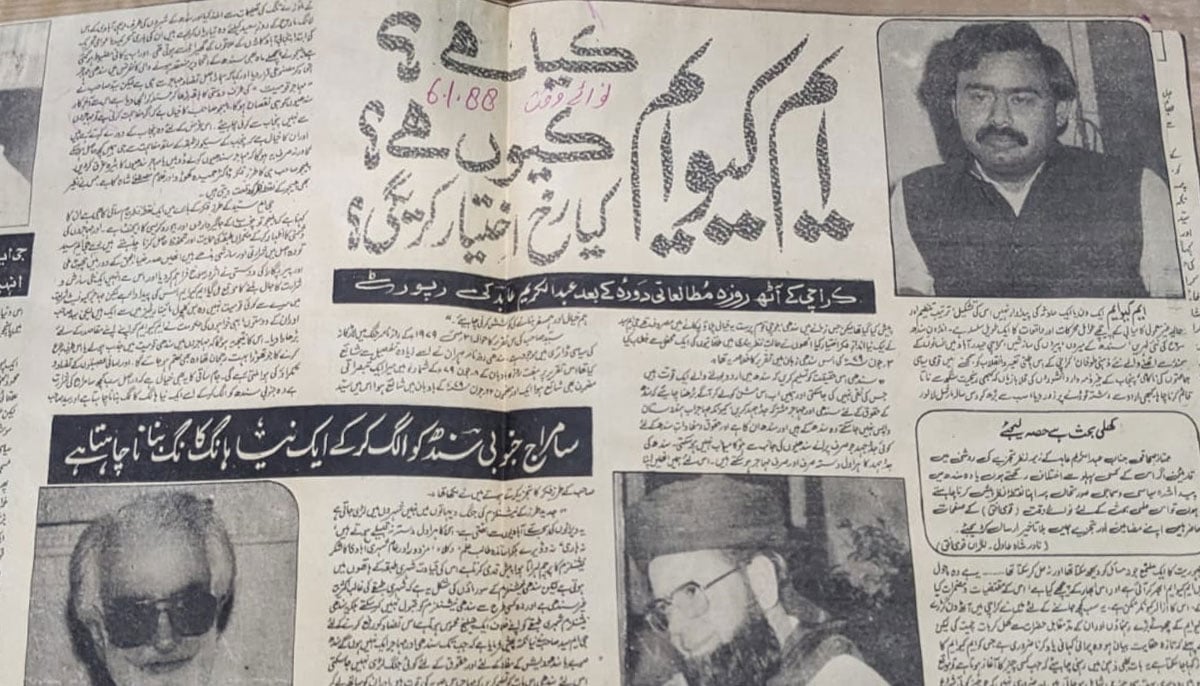
The political journey of the party has been a long and bumpy ride. It took student politics by storm as an influential power group in 1978, eventually evolving into the political entity later known as the mighty MQM.
For nearly three decades, it stood as the exclusive representative of the urban centres in Sindh, arguably as the most influential middle-class party in the South Asian nation's turbulent political history.
The resurrection of this revamped MQM-Pakistan, now sans Altaf, has not been without its fair share of challenges since August 22, 2016.
Let's recount the incident that hammered the last nail in the coffin of the party's supremacy, blow by blow. On the ominous evening of August 22, 2016, Altaf, while addressing his party workers outside the Karachi Press Club, launched an 'anti-Pakistan' slogan, which backfired massively.
He blew away his party leaders and workers by shouting "Pakistan Murdabad" (Death to Pakistan). This out-of-the-blue Altafism blindsided everyone. Although he tried to control the damage by issuing an apology within 24 hours, the die was cast.
With one slogan, Altaf essentially assassinated his party, which until then had enjoyed blanket control over the urban centres of Sindh. The MQM went into survival mode to recover from this trauma. In the following weeks, Altaf's MQM was unofficially deemed defunct, although it still exists on paper.
As for the MQM-Pakistan, the journey became even more trying with the worst yet to come.
While MQM-Pakistan initially seemed to have snapped back, the signs were still menacing as the party did not even have a functioning office at that time.
Just three years earlier, in 2013, when a united MQM secured the most seats, bagging around 800,000 votes in Karachi with only three of them going to the Pakistan Tehreek-e-Insaf (PTI) — one of which was won by Dr Arif Alvi.
As per eyewitnesses, during the MQM General Workers meeting, instead of celebrating the victory, Altaf started berating the Rabita Committee encouraging his followers to humiliate the senior members, behaving poorly, and some allegedly even slapped one or two.
The jubilations turned into lamentations and that’s when the death knell sounded for the party. This was the beginning of a disgraceful end of the MQM's decades-long dominance and as a result, Altaf’s invinciable iron grip on the urban centres of Sindh was no more.
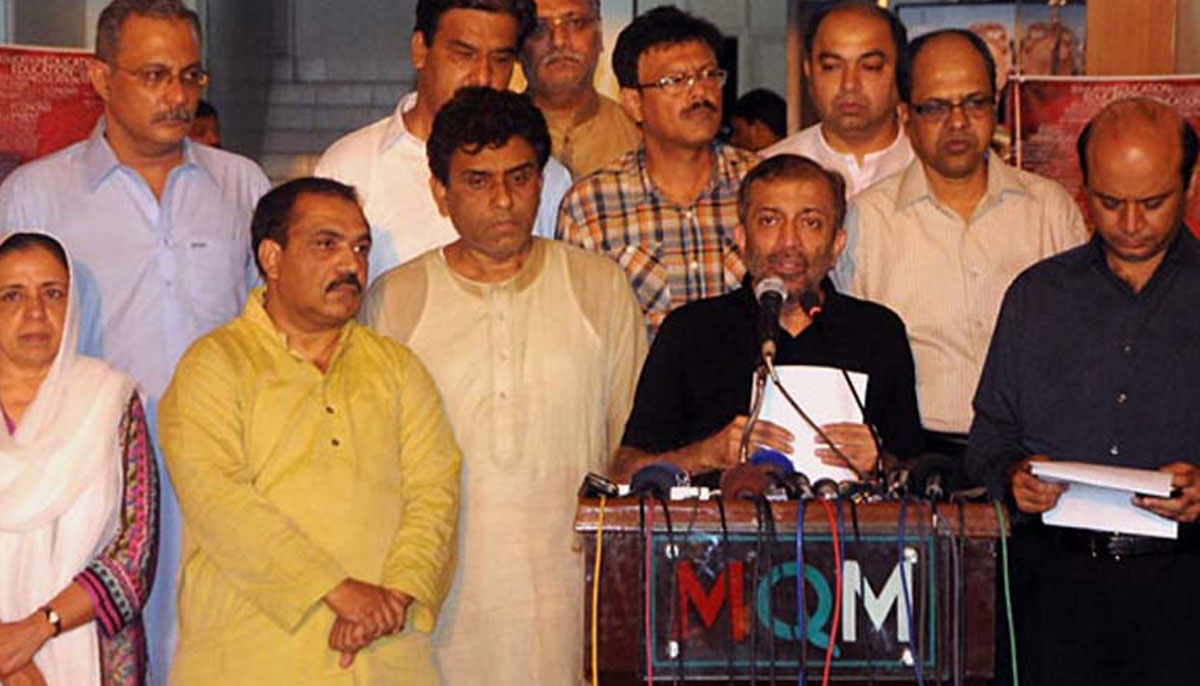
Both events were highly self-destructive and led to a heated debate between MQM-Pakistan and MQM-London. Many leaders in Pakistan advocated for dividing the Rabita Committee between Pakistan and London.
Although Altaf apologised for his conduct in 2013 and 2016, significant damage had already occurred. In 2013, after the incident, leaders like Mustafa Kamal, Anis Qaimkhani, Raza Haroon, and others left the country, bidding farewell to MQM. In 2016, it marked the end of the story for the party founder, Altaf, making him and the MQM-London a "closed transaction" for the establishment.
The unprecedented crackdown following Altaf's speech on August 22, 2016, resulted in the closing of its headquarters near 90 Azizabad, including Khursheed Memorial Hall, MPA Hostel, and Jinnah Park. MQM-Pakistan frontline leaders, including Dr Farooq Sattar, were detained, sending a strong message to others to sever ties with the MQM-London. In 2016, a group within MQM led by Syed Mustafa Kamal, Anis Qaimkhani, and Raza Haroon announced their party, the Pak-Sarzameen Party (PSP), and criticised Altaf.
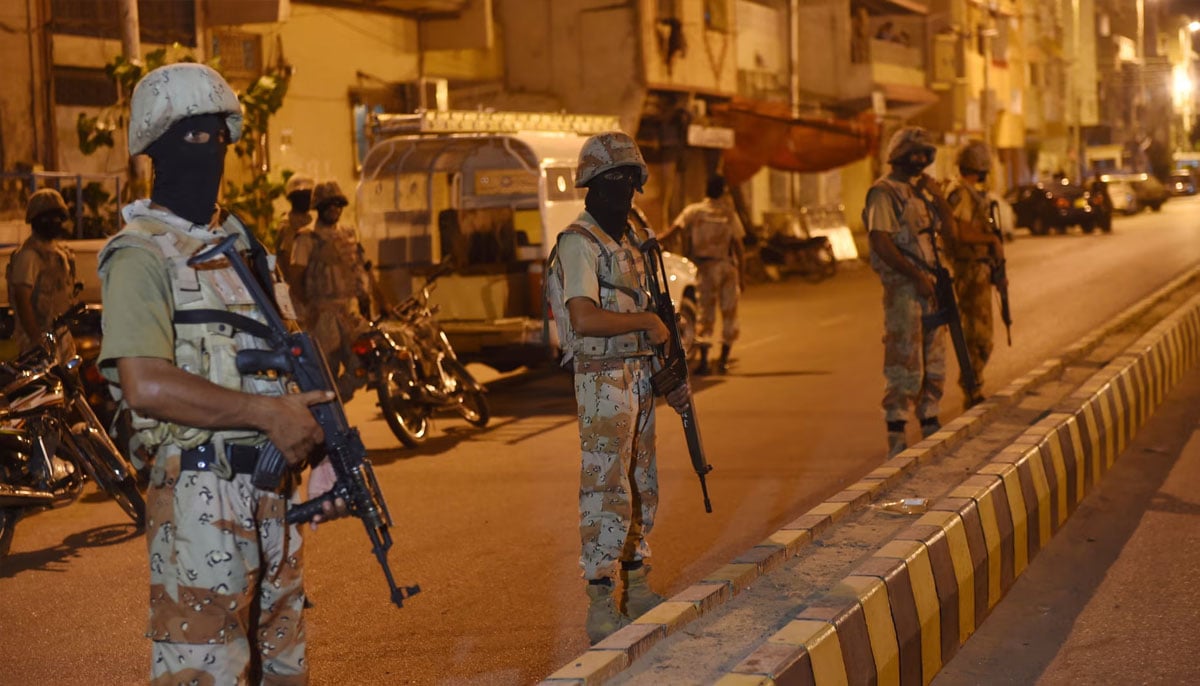
The MQM-Pakistan leadership was suspected of having links with London. Many leaders are still facing charges related to the events of August 22, 2016, and were required to prove loyalty to Pakistan. Resolutions were moved in the Sindh Assembly and the National Assembly against Altaf, resulting in the removal of his name from the MQM's party constitution.
Despite overcoming past crises, including operations in 1992, 1994, and 1998, MQM had never faced such organisational problems. Leadership disputes led to the formation of MQM-PIB led by Dr Farooq Sattar and MQM-Badhurabad led by Khalid Maqbool Siddiqi.
Hundreds of MQM activists were detained or went missing and faced charges related to the August 22, 2016 incident, including sedition and violence. The former governor of Sindh Dr Ishrat ul Ibad resigned because of disagreements over the Pak Sarzameen Party (PSP), escalating with allegations hurled by Mustafa Kamal.
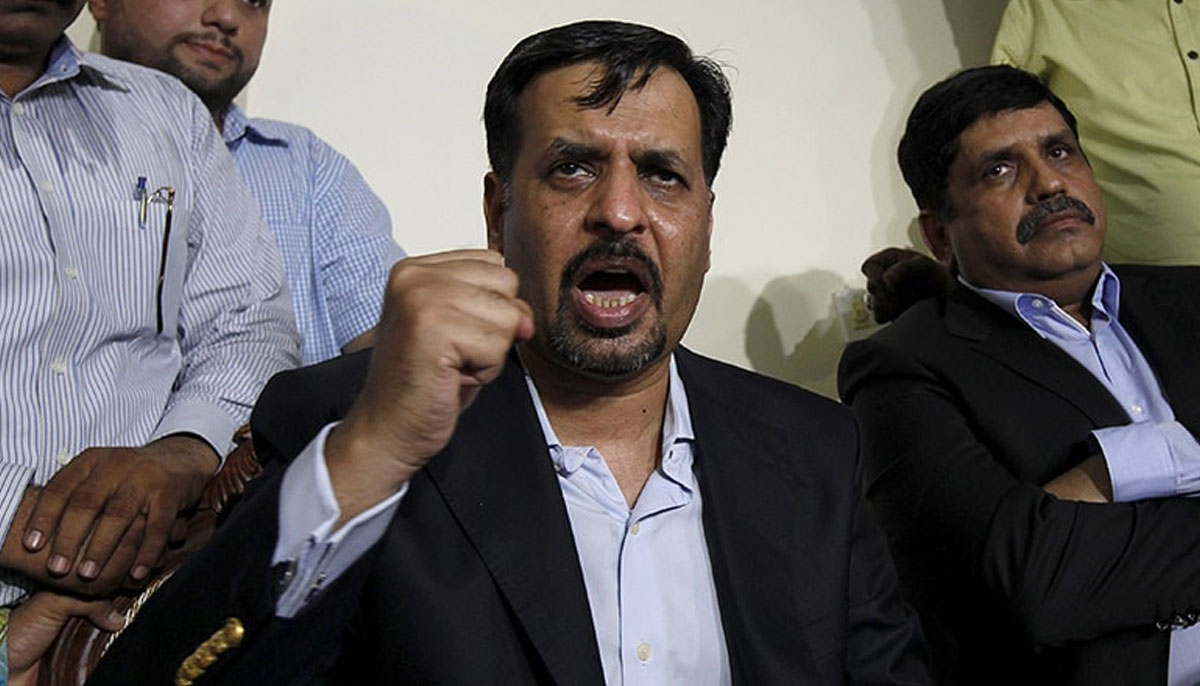
Later, MQM-PIB merged with MQM-Bahadurabad, effectively reviving MQM-Pakistan in 2023.
In the 2018 elections, they won almost 10 to 12 seats, but MQM-Pakistan accused their guaranteed seats were given to PTI on a silver platter by the powers that be. Facing difficulties, MQM-Pakistan settled with four to six National Assembly seats and joined the PTI government led by Imran Khan.
MQM-Pakistan found relief when PSP also decided to merge with it — except for MQM-London and MQM-Haqiqi.
The internal conflict within MQM dates back to its early days, starting with the name change from Mohajir to Muttahida, resulting in the first break-up in 1990-91.
MQM survived the 1992 operation despite cracks appearing in it when Altaf left Pakistan acting on a tip from the then Chief Minister Sindh, the late Jam Sadiq Ali. Till 1992, the MQM had a proper political and organisational structure, with Azeem Ahmad Tariq as Chairman and Dr Imran Farooq as Secretary General. Unfortunately, both became victims of "violent politics" in 1993 and 2010, respectively.
From 2018 to 2022, MQM-Pakistan was part of the PTI-led coalition but left amid pressure to vote against Imran Khan in the vote of no-confidence in March-April 2022. Later, it became an ally of the PML-N-led coalition.
Though MQM-Pakistan has experienced leaders, including Khalid Maqbool Siddiqui, Syed Mustafa Kamal, Dr Farooq Sattar, Anis Qaimkhani, Amin ul Haq, Faisal Sabzwari, and Ms Kishwar Zehra, they lack a firebrand speaker like Haider Abbas Rizvi. Secondly, they also face a dilemma as MQM-London and Altaf, though down, still have sympathy votes.
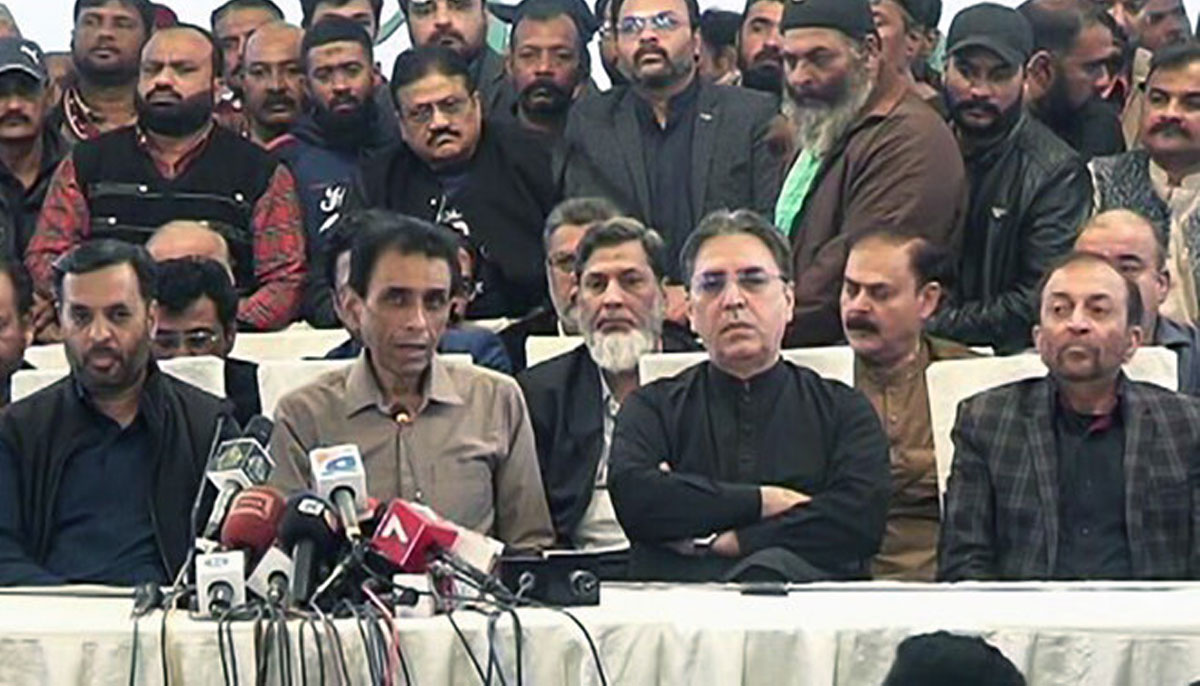
The February 8 general elections would be a 'make-or-break' shot for MQM-Pakistan. Success in reviving the party's image and popularity, and gaining more seats than in 2018, offers a chance for sustainability. Failure could lead to further division within its rank and file.
Mazhar Abbas is a columnist and analyst at Geo News, The News and Daily Jang. He posts @MazharAbbasGeo
— Header and thumbnail design by IMM Creative




